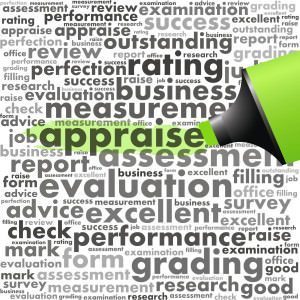Tips
Performance Appraisal Definitions
 Performance Improvement Plans (PIP) are developed for employees at any point in the appraisal cycle when performance becomes Level 1 (unacceptable) in one or more critical elements. This plan affords an employee the opportunity to demonstrate acceptable performance and it is developed with specific guidance provided by a servicing human resources office.
Performance Improvement Plans (PIP) are developed for employees at any point in the appraisal cycle when performance becomes Level 1 (unacceptable) in one or more critical elements. This plan affords an employee the opportunity to demonstrate acceptable performance and it is developed with specific guidance provided by a servicing human resources office.
Performance Management is the integrated process by which an agency involves its employees in improving organizational effectiveness in the accomplishment of agency mission and strategic goals. Performance Management consists of: performance planning, monitoring employee performance, employee development, evaluating employee performance, and recognition.
Performance appraisal system describes how agency will identify performance standards and core competencies and communicate them to employees. Periodical appraisal helps the company to compare employee’s performance and to take apt decisions for further improvement. A structured business planning depends on the performance of the employee and it will be successful only when the employees are analyzing their work performance individually. The formal performance appraisal in a company is conducted annually for all staff and each staff member is appraised by their line manager. Generally employees are appraised based on the structure of the company
Annual performance appraisals evaluate the role of the employee in the organizational development and also monitoring the standard, expectations, objectives, efficiency in handling task and responsibilities in a period of time. Appraisal also helps to analyze the individual training needs of the employee and planning of future job allocation. It also help to adopt appropriate strategy based on organizational training needs. Performance appraisal analyzes employee’s performance and which utilize to review the grades and modify the annual pay. It generally reviews each individual performance against the objectives and standard of the organization. Performance management creating a work environment and it is enabling the employees to perform best of their abilities. Through performance management companies are hiring efficient people .Then the company building up their skills and talents through employee development programs. The tools like performance appraisal, performance review, and appraisal forms create the process of nurturing employee developments.
Performance Appraisal Effectiveness
Effective appraisal considering increase in staff productivity, knowledge and contribution. Formal management procedure used the evaluation of work performance. Effective appraisal helps the employer in providing increased productivity, knowledge and contribution from the staff. These resources increase the ability to do performance consulting, measure performance improvement, and provide resultant training using internal staff, which increases self-sufficiency in performance consulting and improvement. Providing feed back about employee’s job performance and the contribution of reward for their work is very essential in the smooth functioning of an organization.
Performance appraisal tries to:
- Give feedback to employees to improve subsequent performance.
- Identify employee-training needs.
- Document criteria used to allocate organizational rewards.
- Form a basis for personnel decisions-salary (merit) increases, disciplinary actions, etc.
- Provide the opportunity for organizational diagnosis and development.
- Facilitate communication between employee and administrator.
Performance Appraisal Purpose
Feed back of Performance provide an opportunity to discuss strength and resolution of performance deficiencies of an employee. Which also encouraged preparing ratings of their supervisors. Performance appraisal allows a person to grow in what ever the direction he wants to move. Employers promote positive attitude, advancement, and motivation to make the employee to understand their own special potential, and find roles that really fit well. Developing the whole-person is also an important aspect of modern corporate responsibility, and separately whole-person development is a crucial advantage in the employment market; in which all employers compete to attract the best recruits, and to retain the best staff.
The UK Employment Equality (Age) Regulations 2006, (consistent with Europe), effective from 1st October 2006, make it particularly important to avoid any comments, judgments, suggestions, questions or decisions which might be perceived by the appraise to be based on age.
Usually performance appraisal used for developmental purpose which also helps to identify the eligible person for reward. It stimulates the performance and making promotions, transfer and discharge decisions.
Aspects of Job Analysis
Job Analysis is a process to identify and determine in detail the particular job duties and requirements and the relative importance of these duties for a given job. Job Analysis is a process where judgments are made about data collected on a job. Information regarding duties and tasks, Environment, tools and equipments, external and internal relationships and the minimum requirements to perform the job are considered under job analysis.
Rating in Performance Evaluation
Rating can be performed by the committee of several superiors, employee’s peers, employees’ subordinates. Apart from these self evaluation also valid. These rating are based on observation, analysis of data and records, discussion with the employee.
Problems during performance Appraisal
There are chances of opposition for valuation due to fear. If the evaluation system is poor, it will not give adequate effect. Rater’s problems like leniency or harshness error, central tendency error, personal bias error, contrast error are also affecting the performance appraisal of an employee.
Each employee should evaluate by his supervisor and to discuss each other to set objectives for upcoming evaluation. This discussion should cover the review of overall progress, problems encountered, performance improvement possibilities, long term career goals, specific action plan about job description and responsibilities, employee development interest and needs, to concentrate specific areas of development, to review performance objectives and performance standard, ongoing feed back and periodic discussions
Performance appraisals are important for staff motivation, attitude and behavior development, communicating organizational aims, and fostering positive relationships between management and staff. Performance appraisals provide a formal, recorded, regular review of an individual’s performance, and a plan for future development. In short, performance and job appraisals are vital for managing the performance of people and organizations.
